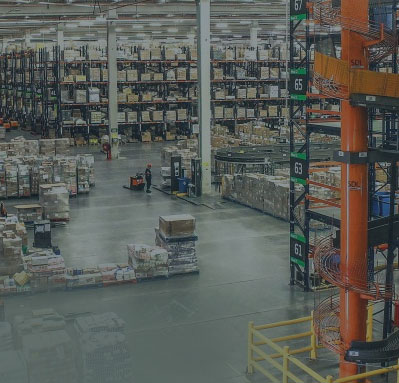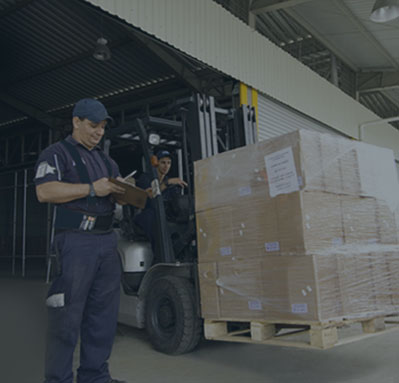In the dynamic landscape of retail logistics, the quest for a seamless, efficient inventory system is never-ending. Traditional inventory tracking methods, although reliable, are fraught with inefficiencies. Manual counts are laborious, barcode scanning is time-consuming, and both are susceptible to human error. Radio Frequency Identification (RFID) technology offers a revolutionary approach to inventory management that is reshaping the retail industry. In this article we’ll explore the benefits of RFID technology and how it’s transforming inventory tracking in real logistics.
Understanding RFID Technology
At its core, RFID technology utilizes electromagnetic fields to identify and track tags attached to objects. These tags, embedded with electronically stored information, can be detected and read from several meters away, eliminating the need for direct line-of-sight required by barcode systems.
An RFID system comprises three essential elements:
- RFID Tags: Small, electronic devices attached to items that store data about the item. These tags can be passive, drawing power from the reader’s electromagnetic field and ideal for short-range tracking, or active, equipped with their own power source for long-range data transmission.
- RFID Readers: Devices that emit radio waves to detect and read the information stored on RFID tags. These readers can scan multiple tags simultaneously, even without direct line-of-sight, significantly enhancing the speed and efficiency of inventory tracking processes.
- RFID Software: The backbone of the RFID system, this software processes and interprets the data collected from RFID tags. It integrates this information into inventory management systems, providing real-time insights into stock levels, movements, and other critical metrics necessary for effective inventory control.
Together, these components work in harmony to streamline inventory tracking, offering advantages such as increased efficiency, accuracy, and visibility in retail logistics and beyond.
![]()
The Mechanism Behind RFID
RFID technology offers a versatile range of tagging options, primarily divided into two distinct categories: passive and active tags. Each type is endowed with unique characteristics tailored to meet the diverse needs of inventory management systems. This categorization not only underscores the adaptability of RFID technology but also highlights its potential to revolutionize how businesses track and manage their inventories across various industries.
Passive RFID Tags
Passive RFID tags are designed to draw power from the reader’s electromagnetic field, eliminating the need for an internal power source. This design makes them cost-effective and lightweight, ideal for tracking items over short distances. Their simplicity and low cost allow for widespread deployment, enabling businesses to tag a vast number of items at minimal expense. However, the reliance on readers for power limits their read range, making them best suited for applications where items are scanned at close proximity.
Active RFID Tags
Active RFID tags, in contrast, are equipped with their own power source, typically a battery, enabling them to transmit data over longer distances. This feature allows for enhanced functionality, such as the ability to track items in large, open areas or through environmental conditions that might obstruct passive tags. While active tags are more expensive than their passive counterparts, their extended range and durability make them invaluable for specific applications requiring real-time tracking over greater distances. Their built-in power source also supports additional features like sensors and the ability to store more data, further expanding their utility in complex inventory and logistics operations.
The Advantages of RFID in Inventory Tracking
The leap from traditional tracking methods to RFID technology brings with it a host of benefits. RFID systems can scan multiple tags simultaneously, vastly improving the speed and efficiency of inventory counts. This automation not only reduces the time taken but also minimizes human errors, resulting in more accurate inventory records. Furthermore, RFID technology offers real-time data on inventory levels, providing businesses with immediate insights into their stock, which in turn enhances decision-making and reduces the likelihood of stock discrepancies.
- Transforming Retail Logistics: RFID technology is revolutionizing the retail sector by enhancing inventory accuracy, improving supply chain visibility, increasing sales, reducing shrinkage, and streamlining returns processing.
- Enhancing Inventory Accuracy: RFID’s capability to provide near-perfect inventory accuracy is a significant boon for retailers. This precision in tracking stock levels allows for better decision-making regarding restocking, promotions, and markdowns, leading to optimized sales and heightened customer satisfaction.
- Improving Supply Chain Visibility: With RFID, every item’s journey through the supply chain, from production to the retail shelf, can be monitored in real-time. This visibility allows retailers to identify and address bottlenecks swiftly, thereby enhancing the efficiency and responsiveness of the supply chain.
- Impact on Sales and Shrinkage: The accuracy and visibility provided by RFID also translate to increased sales and reduced shrinkage. By ensuring that products are available when customers wish to purchase them, sales are naturally boosted. Additionally, the detailed tracking capabilities of RFID make it easier to detect and prevent inventory loss, whether due to theft, errors, or fraud.
- Streamlining Returns Processing: Handling returns can often be a logistical nightmare. However, RFID simplifies this aspect by making it easier to verify and process returned items swiftly, ensuring they are promptly reintegrated into inventory or disposed of accordingly.
- Optimizing Inventory Placement: RFID data can be used to analyze shopping patterns and product movements, allowing retailers to optimize the placement of items within the store. This strategic positioning can lead to increased customer engagement and sales by ensuring high-demand products are easily accessible.
- Facilitating Dynamic Pricing Strategies: With real-time inventory data, retailers can implement dynamic pricing strategies more effectively. RFID technology enables the quick adjustment of prices based on stock levels, demand, and other market factors, helping retailers stay competitive and maximize profits.
![]()
The Future of RFID in Retail
As RFID technology becomes more cost-effective, its adoption across the retail sector is expected to rise. Continuous innovations in RFID tags, readers, and software are enhancing the efficiency and capabilities of inventory tracking systems. The integration of RFID with other emerging technologies such as the Internet of Things (IoT), artificial intelligence (AI), and big data analytics promises to unlock even greater potential for optimizing retail operations. These advancements could enable more personalized shopping experiences, predictive inventory management, and enhanced supply chain agility. Looking ahead, RFID could well become the gold standard for inventory management in retail logistics, driving further improvements in operational efficiency, accuracy, and customer satisfaction. This evolution underscores RFID’s pivotal role in shaping the future of retail, making it an indispensable tool for retailers aiming to thrive in a highly competitive and technology-driven marketplace.
Transforming Inventory Management with Cargoline and RFID Technology
RFID technology stands as a pivotal breakthrough in the refinement of inventory tracking across retail logistics, offering a solution that surpasses the capabilities of conventional methods. With its exceptional combination of speed, precision, and transparency, RFID technology propels the retail industry forward amidst a landscape marked by fierce competition and substantial challenges. The embrace of RFID by retailers through partners like Cargoline signifies a significant stride towards achieving operational superiority. Employing RFID not only streamlines inventory management processes but also sets the stage for increased profitability and customer satisfaction, ushering in a transformative period in retail logistics.
In the current dynamic retail environment, RFID technology emerges as a fundamental tool for elevating inventory management standards. At Cargoline, we pride ourselves on expertly weaving RFID solutions into your retail ecosystem, thus boosting operational efficiency from the supply chain to the sales floor. Our proficiency extends well beyond conventional retail methodologies, as we provide all-encompassing support for the adoption and enhancement of RFID technology. Whether you are aiming to refine your current inventory management practices or embarking on the initial steps towards RFID integration, Cargoline stands as your quintessential ally. We understand the challenges associated with implementing RFID technology and are committed to demystifying this process for your retail business.
Contact Cargoline today to facilitate a smoother transition and secure a competitive edge in the bustling world of retail.






